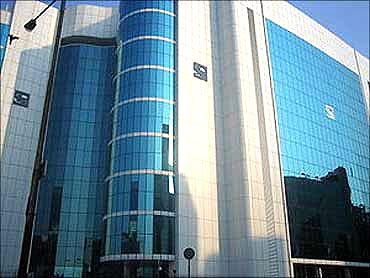 | « Back to article | Print this article |
Keep tab on firms pledging shares
Financial planner Mukhesh Dedhia's advice to Mysore-based housewife Reshmi Anoop is quite simple: "Don't worry if companies that you hold are pledging shares."
His reason is quite simple: Pledging alone need not have implications for shareholders.
"You also need to know the number of shares being pledged, amount being raised and the purpose behind pledging shares to raise the money."
Anoop, who holds shares of Tata Motors and Tata Consultancy Services, recently read that both these firms have pledged eight per cent and 10 per cent promoters' holdings.
Her worry: "How will this impact my investments in these companies?"
The answer is not simple, as pledging is a common feature among the Indian companies.
A recent report by Morgan Stanley Asia Pacific points that 774 listed companies have pledged shares with banks and raised Rs. 83,039.2 crore (Rs. 830.392 billion), as on the December quarter.
These 774 companies account for 21 per cent of the combined market capitalisation of all the listed companies.
Click NEXT to read further...
Keep tab on firms pledging shares
There are a number of things you can do to keep tab on this:
Company size
Last week, the promoters of Hero Honda, Hero Investments Private Ltd, pledged shares worth Rs. 200 crore (Rs. 2 billion), after pledging 5.32 per cent stake with IL&FS Trust Co worth Rs 1,585 crore (Rs. 15.85 billion).
The BM Munjal led Hero Group raised funds to finance the buyout of Honda's 26 per cent stake. But market experts are not too worried because of the company's strong fundamentals.
Click NEXT to read further...
Keep tab on firms pledging shares
He added that investors should try and exit small-cap companies in such cases, as the counters are very risky and these events accelerate sharp movements in these stocks.
Fundamentally, strong companies may not see any impact on share price but many in the real estate and telecommunication sectors have seen extreme movements due to promoters pledging shares and investors are advised to sell shares.
How much has been pledged?
If the promoter holding is high at the time of pledging shares, investors should not worry even if they pledge more number of shares.
"But, if promoters are pledging over 30 per cent, investors should try and find out the reason behind shares being pledged," advises Thunuguntla. The good part is that promoters are only mortgaging their holding, not selling it.
Click NEXT to read further...
Keep tab on firms pledging shares
You should be even more alert when promoters with lower holding (less than 15-20 per cent) in the company pledge 10 per cent or more.
Seek the purpose
"Promoters raise money by pledging shares to fund growth plans that should not deter investors.
"Many companies pledge shares to apply for shares under their rights issue, at a price same as other shareholders. This should give confidence to investors, said Dedhia.
But this comes with a warning. Many promoters also pledge because they lost money due to bad business decisions or speculative tradings. The funds were raised to make up for it.
"It shows the liquidity condition of promoters is not very healthy and investors may want to exit such counters," said Jagannadham Thunuguntla, strategist & head of research, SMC Global Securities.
For retail investors, this bit of information is difficult to find.
If the company is pledging more shares with the financier because of the fall in share prices, there could be warning bells. Financiers keep the shares as collateral.
So, whenever the share price goes down, the promoter is either suppose to part pay the loan or pledge more shares. If the promoter cannot oblige, the lender can offload the shares in the market.





